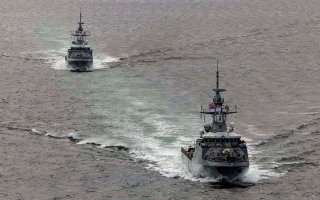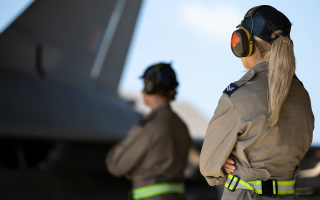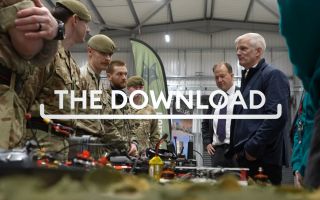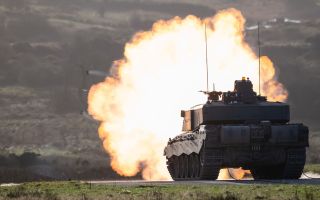No terrain too tough for British soldiers surviving in the Belize jungles
The UK Armed Forces must be ready to adapt and take on all environments, be that the deserts of Oman or the Arctic terrains of Norway.
One hundred and twenty soldiers from the 1st Battalion Royal Anglian Regiment, also known as the Vikings, have put this to the test, taking on the unforgiving Belizean jungle.
The Central American jungle is relentless, from humidity to hurricanes and the animals found in between, in this environment everything works against the soldiers.
The British Army sends its soldiers to Belize to learn how to survive, live and fight in a jungle, and the country's challenging terrain and austere environment give the soldiers a world-class training area.
The skills learned in the jungle are transferable to other environments and the gruelling training sets them up for success in future operations.
But how do you survive, fighting in the jungle?
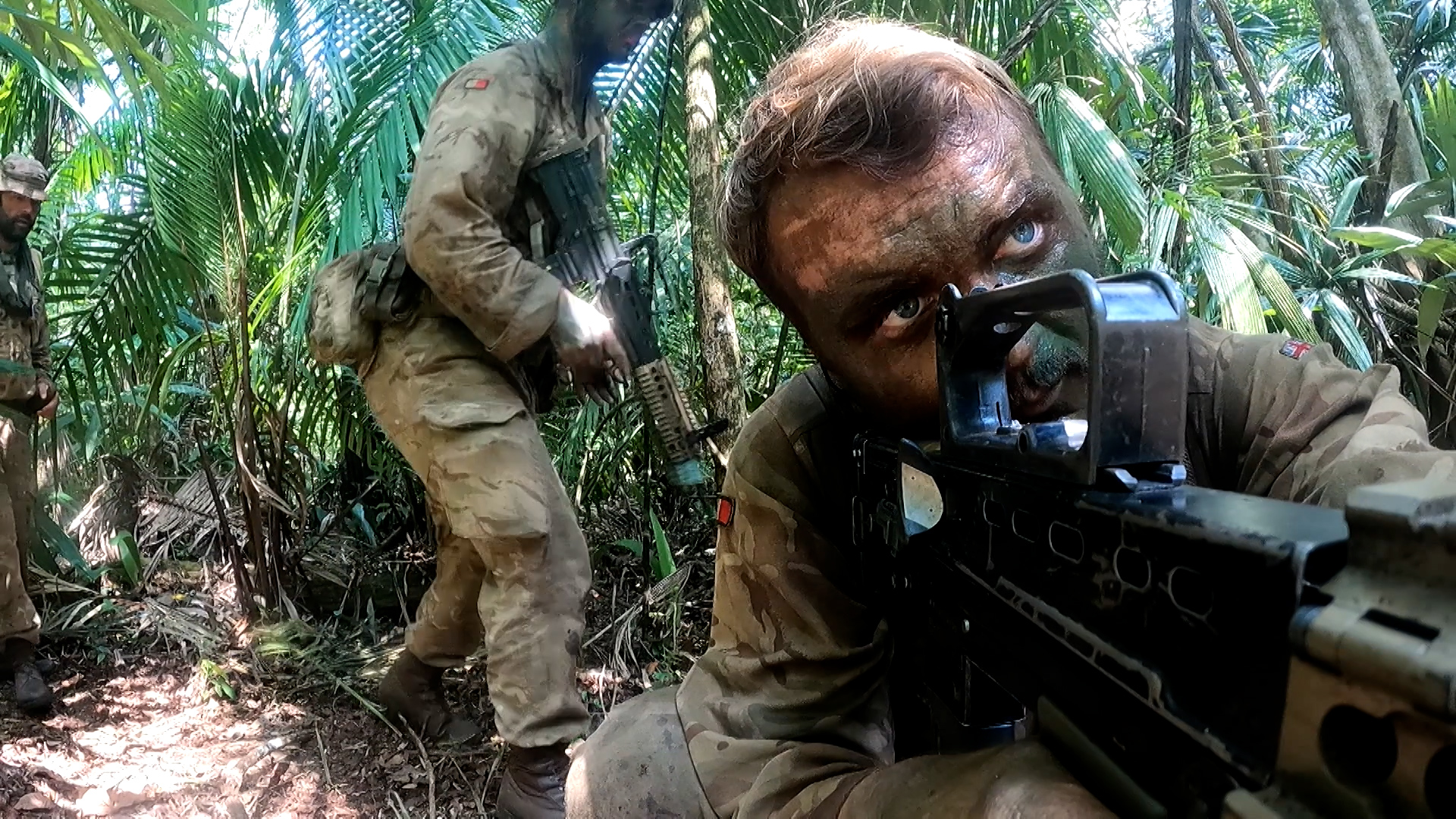
The Guacamallo training area in Belize, size-wise, is not too dissimilar to Salisbury Plain, however, the dense foliage and thick canopy provide a tough challenge to exercise in.
On foot, the soldiers can get through about 1km a day in Belize, in comparison to the 4km an hour at the UK training area.
To get through the jungle exercise, the soldiers need a different kit, which involves going back to basics.
"Each man will come with a compass pouch and a spare compass attached with a lanyard, that's so we obviously don't lose it," Private Joseph Kenny-Davis, 6 Platoon, D Company, 1 Royal Anglian, told Forces News.
"Inside our left pocket, we have a survival guide, which is what we use in case we do get lost," he said.
"In our right-hand pocket, we have our map clipped on with our pocket to make sure we don't lose it as well.
"Moving on to our belt kit, so every man, on their left-hand side, will carry their parang, again this is used for safety measures."
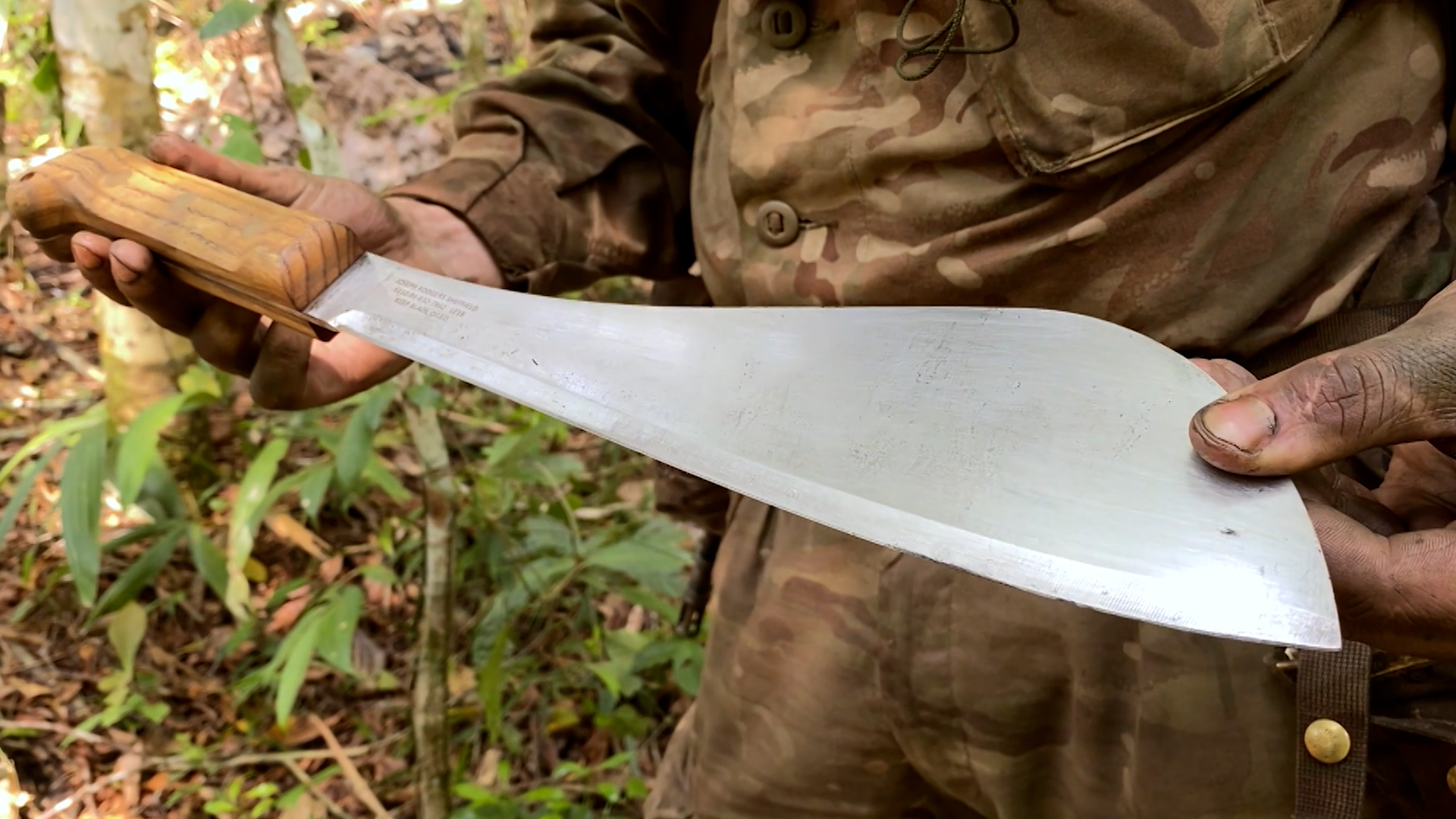
Their machete is oiled every day to make sure it remains in good condition.
"We only use these (parang) for safety, so that is if we do get lost in the jungle and we do need to get ourselves out, we have a safety measure so we can cut our way through," Pte Kenny-Davis said.
The boots they wear are different to most boots used in the Army.
"On the inside of our boot is spike protection. As you can imagine here there are a lot of nasty trees around here that want to get into your boots."
As well as this, all of their trousers are tucked into their boots and secured tightly.
"As you can imagine again, the insects do come on you as you're crawling through the jungle, they love coming in here (trousers) and getting stuck in here."
The soldiers use the same camouflage cream as a normal conventional exercise, however, they apply it a lot more and also make sure to cover their hands as well to make sure they are camouflaged in the jungle.
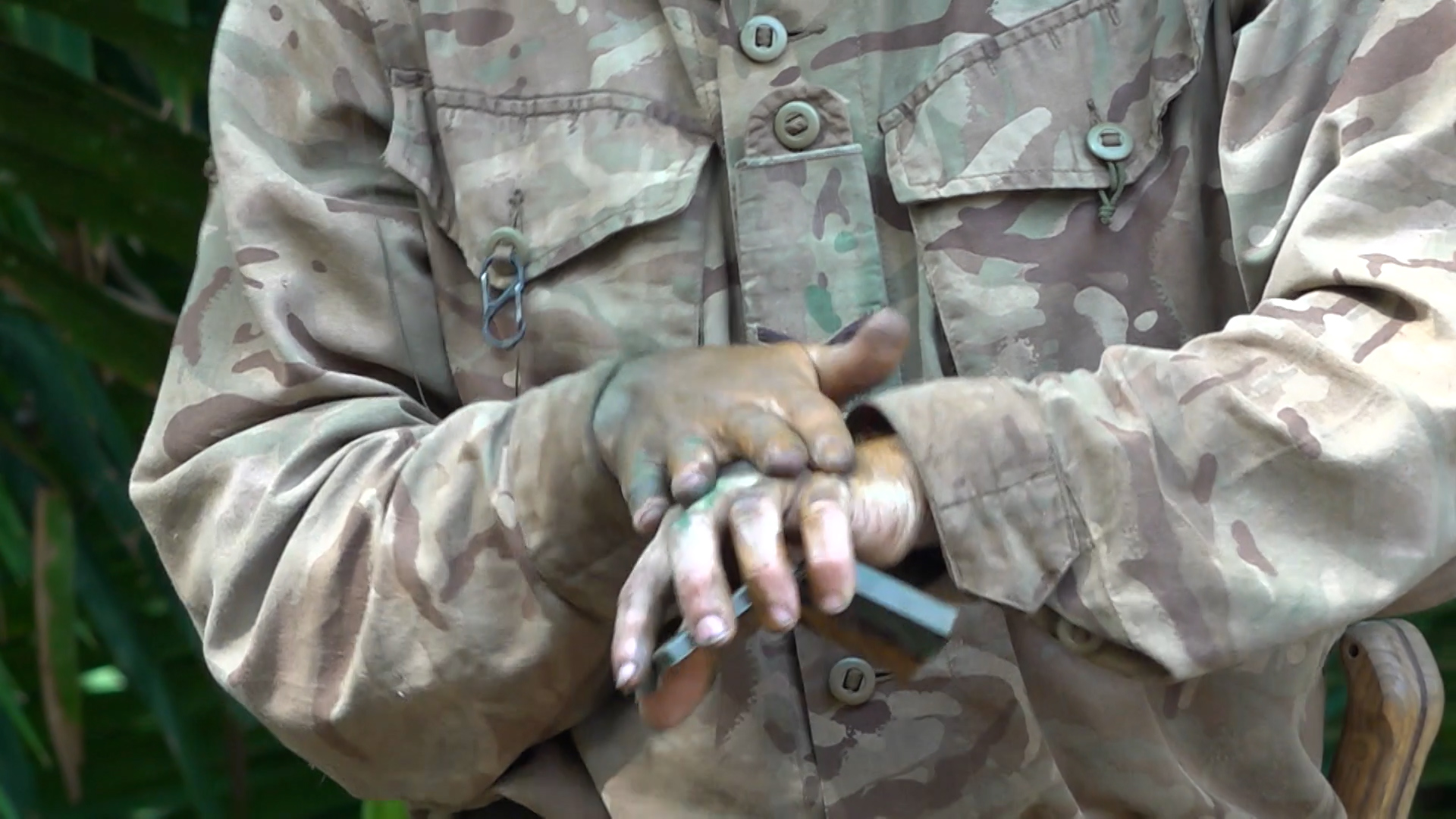
During their training in Belize, their soldiering skills go back to basics.
Major Oliver Bullem, Officer Commanding D Company, told Forces News: "The tactics we employ in the jungle are different to those we might employ on Salisbury Plain, for instance."
He added: "Because the jungle is so much thicker, we use a much higher rate of fire when in contact with the enemy.
"When it comes to our tactics, it's much harder to communicate with each other, the radios are far less effective, so we rely an awful lot on hand signals and moving silently at night."
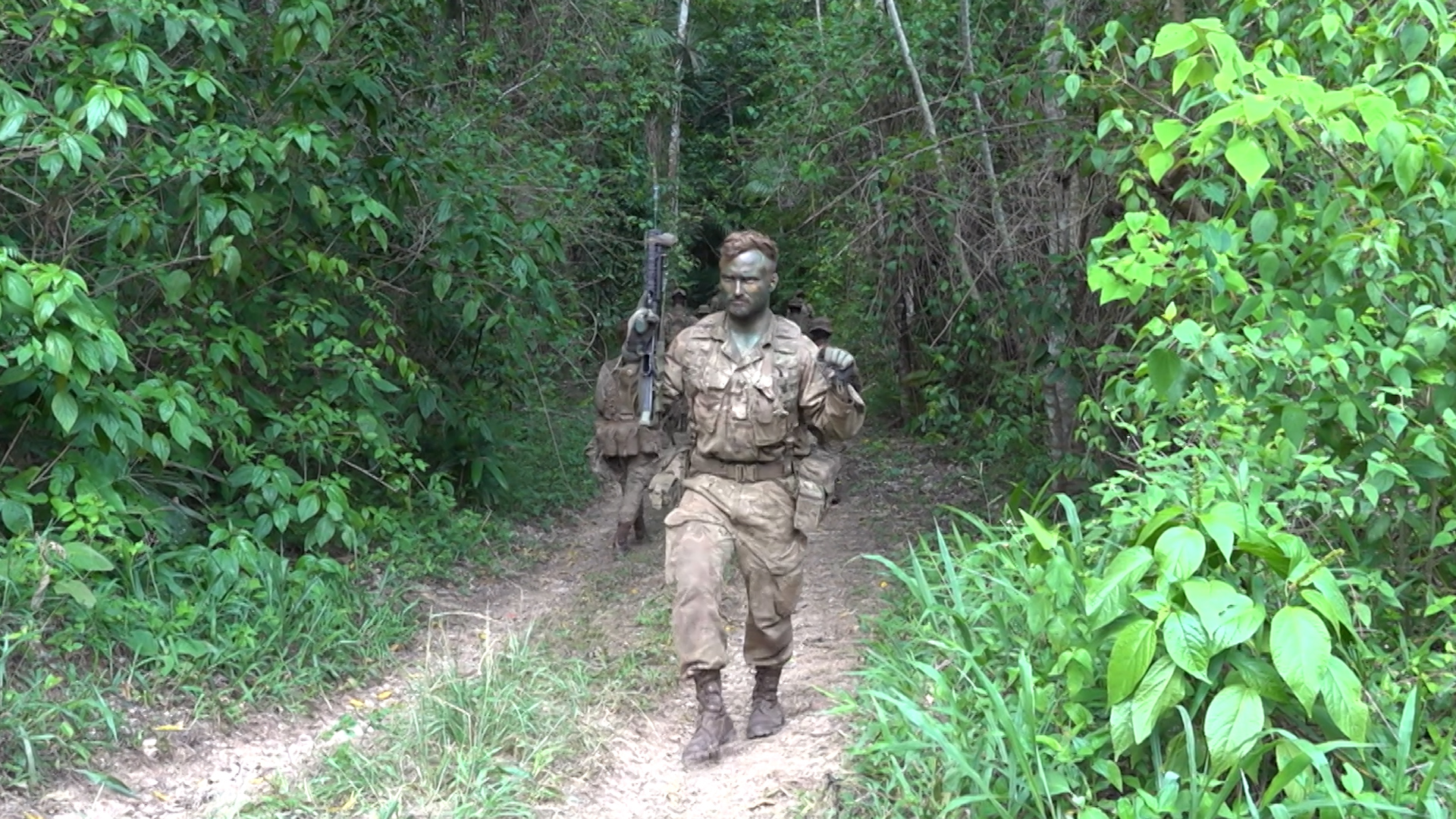
Maj Bullem added: "The very basic skills here are some of the most important ones that we're assessed on and really tested on out here.
"Just being able to survive in the jungle and look after yourself and your kit is one of the most important skills," he added.
The Vikings are in the Belizean jungle for a month and, for most of them, it is the first time in their lives they have seen a jungle.
Sergeant Ryan McAlees, Reconnaissance Platoon, D Company, 1 Royal Anglian, told Forces News about the "massive shock" the environment had on him and his team.
He said: "As soon as you hit the ground the humidity hits you and the heat has been a real challenge to, one, navigate, and two, actually get eyes on enemy positions until we are within five to 10 metres of them.
"So it has been a shock to everyone on the exercise."
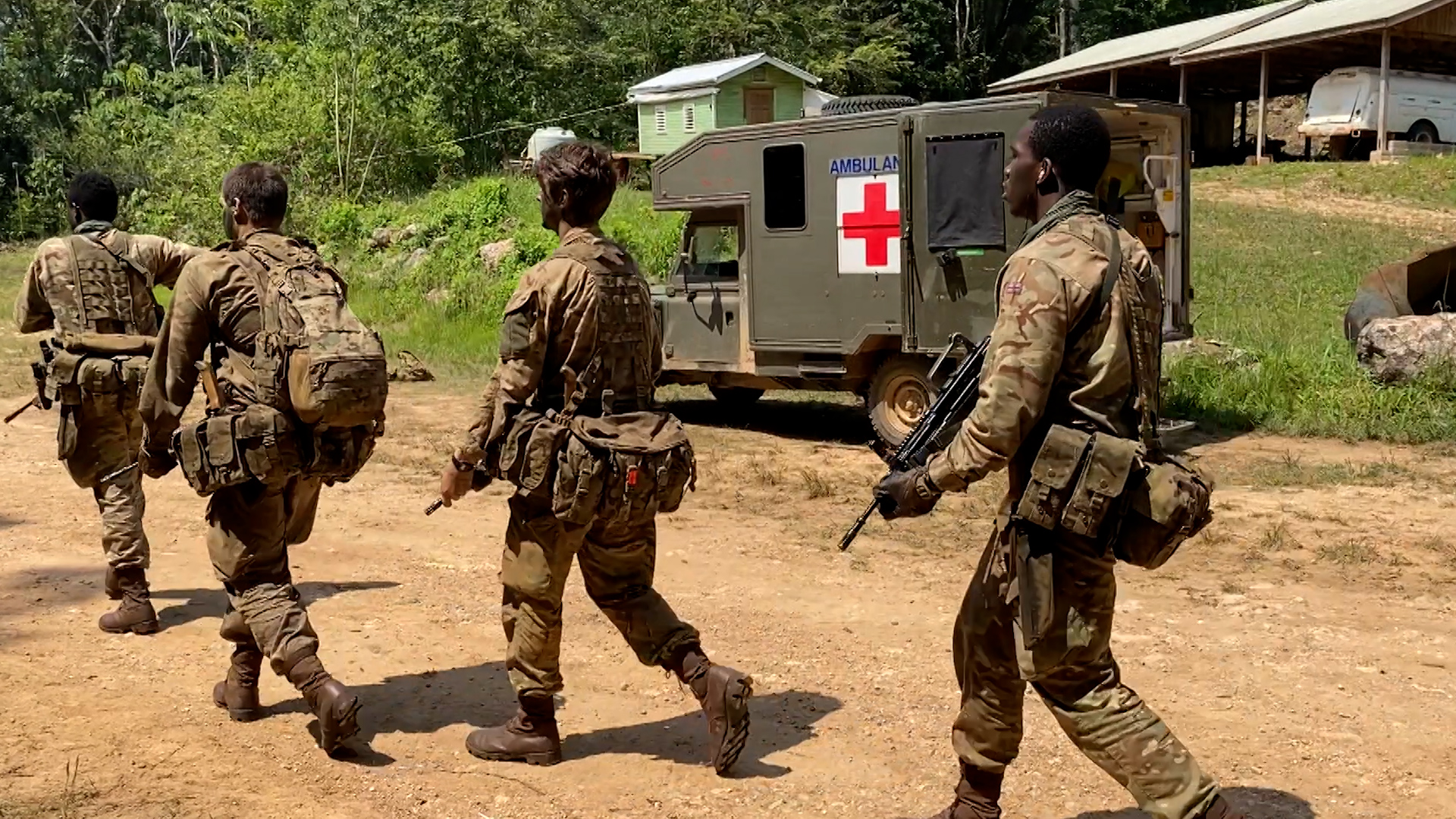
As well as live firing and sleeping out among the jungle's animal inhabitants, they are also expected to complete a river crossing – a way to go unnoticed by the enemy.
If something were to go wrong in the crocodile-infested river, they are three hours from a hospital, much further away than is usual for an exercise.
Lieutenant Colonel Ruth Chapman, Regimental Medical Officer, 1 Royal Anglian, discussed some of the medical challenges they face when on exercise in Belize.
She said: "So we've had a lot of infected scratches and bites, which we've treated.
"But we've also had some quite unusual bites and lesions of the skin, such as leishmaniasis and bot fly, where the fly actually leaves the larva in the skin to grow, which is rather unpleasant."
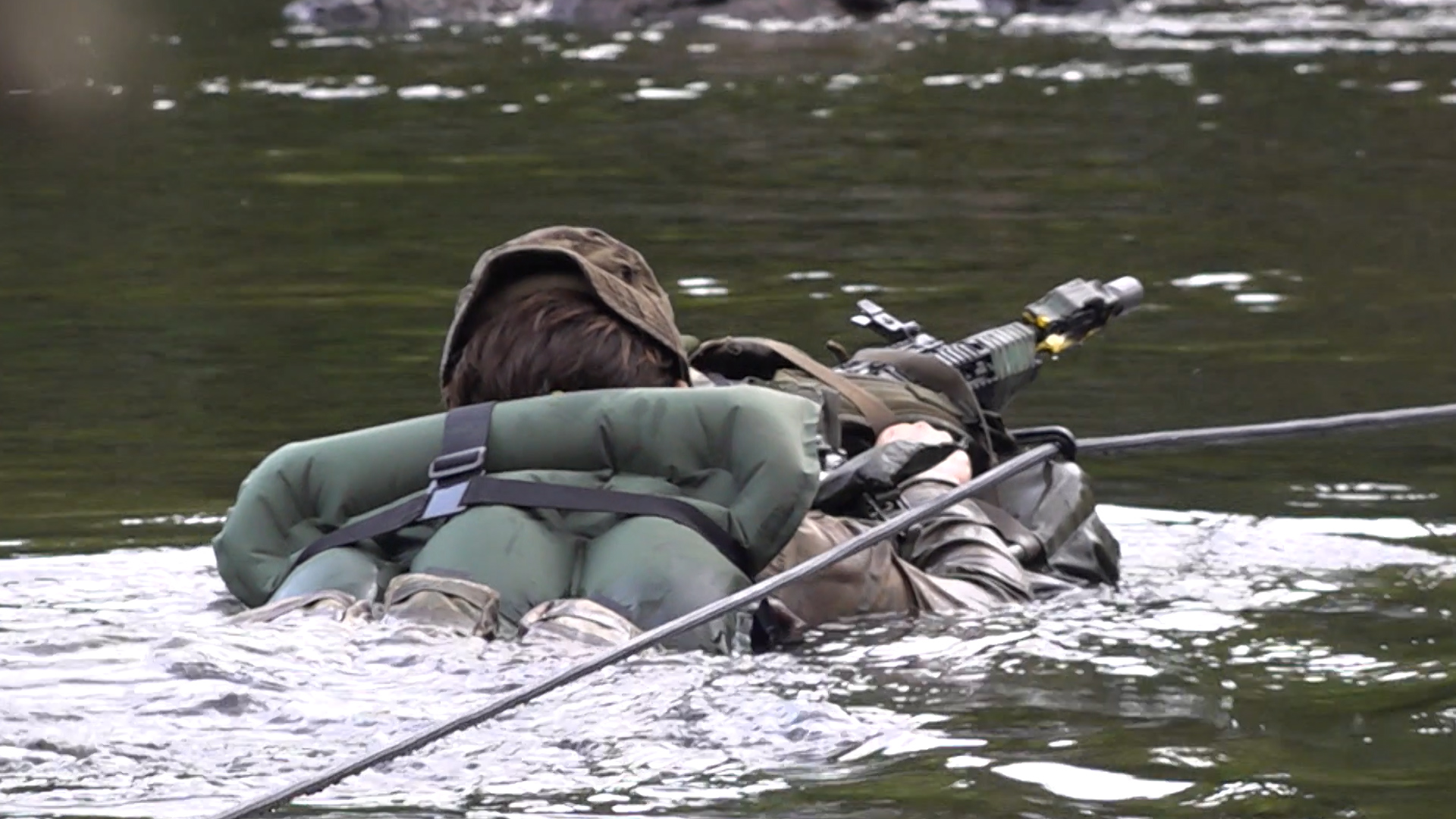
Lt Col Chapman highlighted that 1 Royal Anglian, being from Cyprus, are used to dealing with heat and also treating heat illness.
She credited her medics who are all over managing that during the exercise, saying: "They are trained to actually treat heat illness within the jungle so that we critically reduce the heat, the temperature, the rectal temperature, within 30 minutes."
Unfortunately, not all the soldiers sent to Belize will manage to complete the exercise with some ending up evacuated due to heat illness.
Another challenge the troops must face during their training is food. They must survive off ration packs for their month in Belize.
But if they were stranded in an operational situation, they would have to find alternatives.
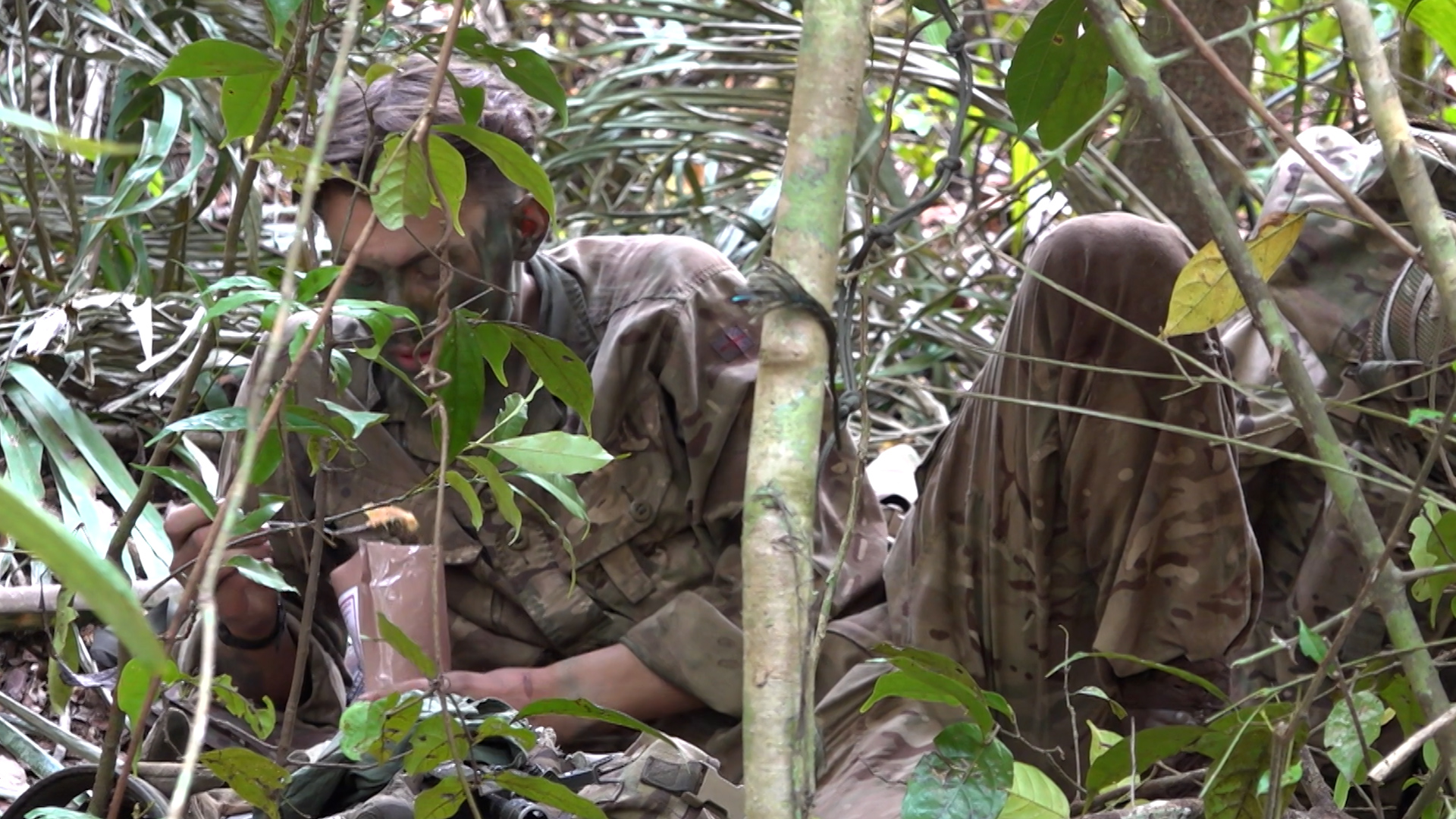
"When you're absolutely needing food you then start setting these traps up (dangle trap), as a last resort," Lance Corporal Nathan Monk, 5 Platoon, B Company, 1 Royal Anglian explained.
The soldiers will make use of traps such as 'The Dangle'.
It is a simple trap that baits in the animal and lifts it up and keeps them stuck for a significant amount of time giving the soldier enough time to retrieve it.
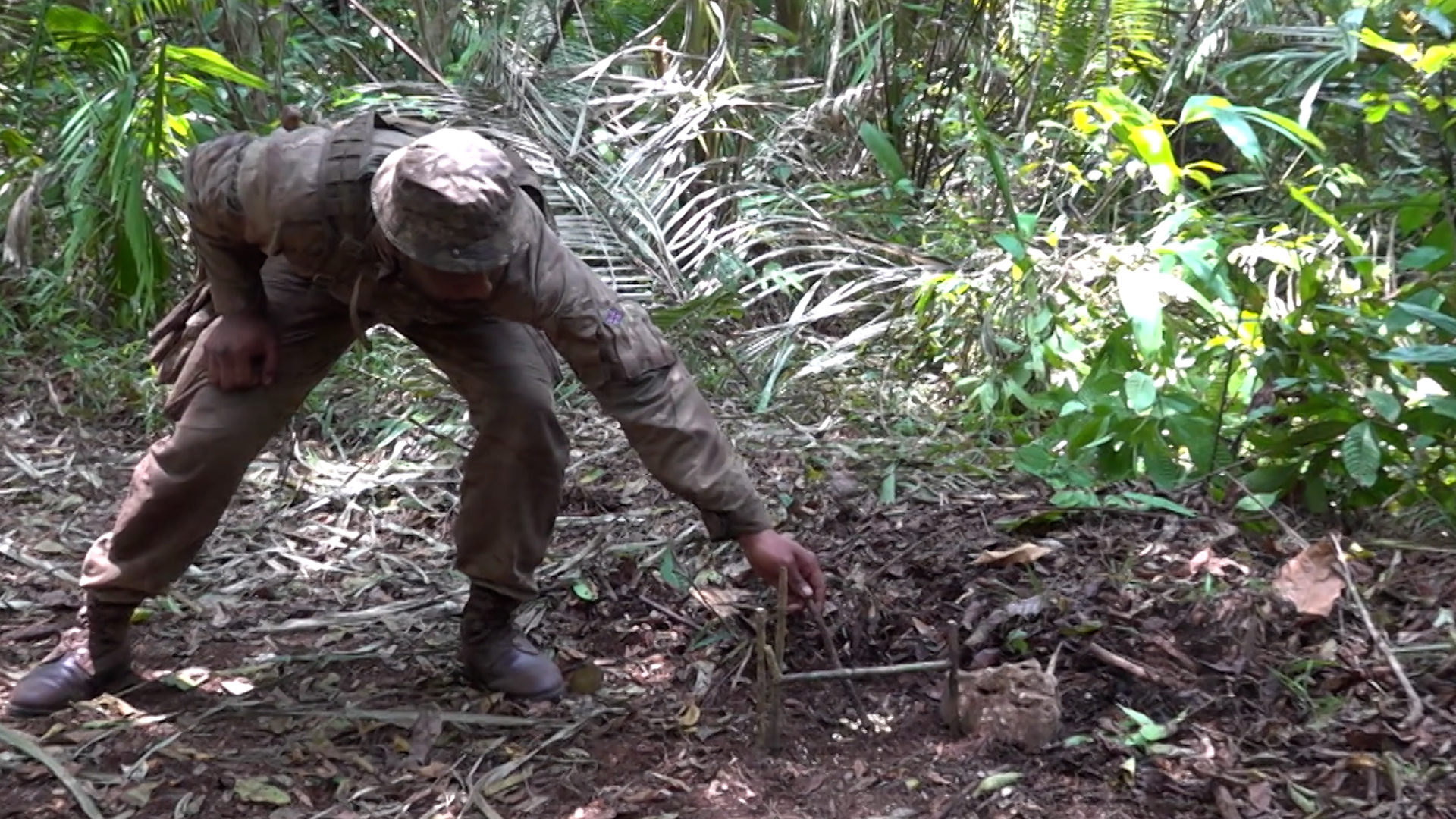
Lieutenant Colonel Adrian Thompson is the Commanding Officer of 1 Royal Anglian and was in Belize 17 years ago taking part in the jungle exercise himself.
He said: "There are lots of transferable skills that we learn from operating in the jungle.
"Whilst you might go to another country and the humidity and climate won't be nearly as oppressive as operating in the jungle, all of the skills the soldiers will have picked up here are absolutely transferable."
Lt Col Thompson added: "Belize is one of the land regional hubs that the Army has set up from the Integrated Review and, under Future Soldier, and the intention is to continue to use this for expeditionary training."
He continued: "One of the things we are looking at in the Army and how we fight in the future is in a much more dispersed manner than we've perhaps previously trained for.
"In order to do that, a company needs to understand how its logistics are going to operate, how it can resupply itself, what it can carry, what individuals are able to carry on their person, whilst still being able to fight and operate effectively."
With the combination of survival and tactical skills they have been exposed to in the Belizean jungle, the Vikings will return to Cyprus with the assurance they can live and fight in one of the most challenging environments on earth.



